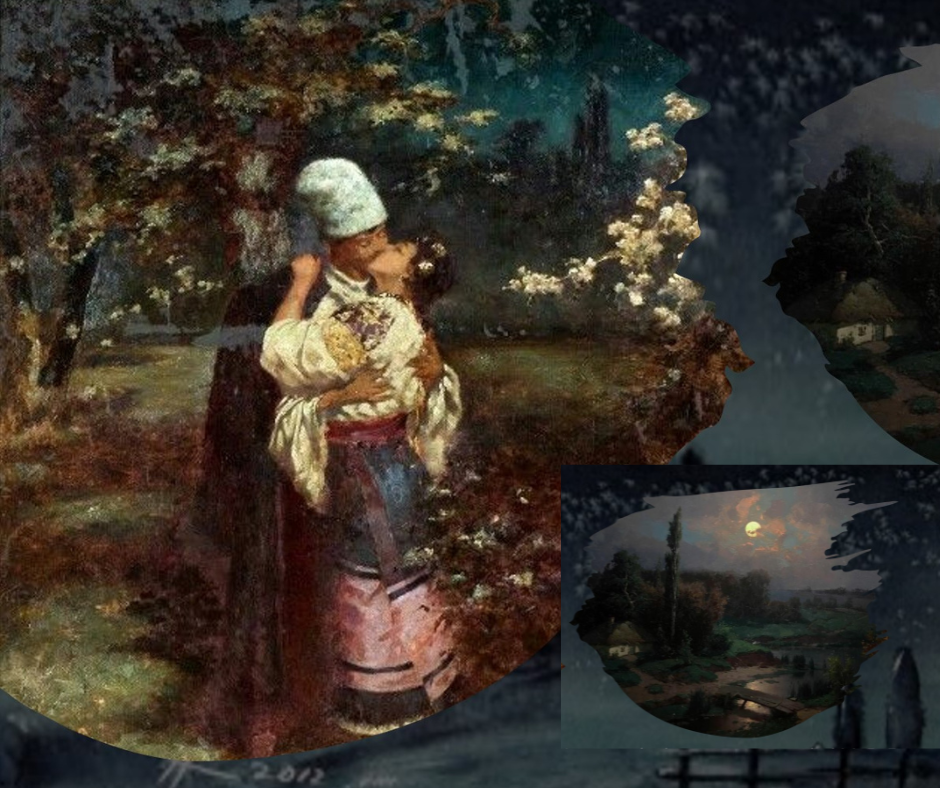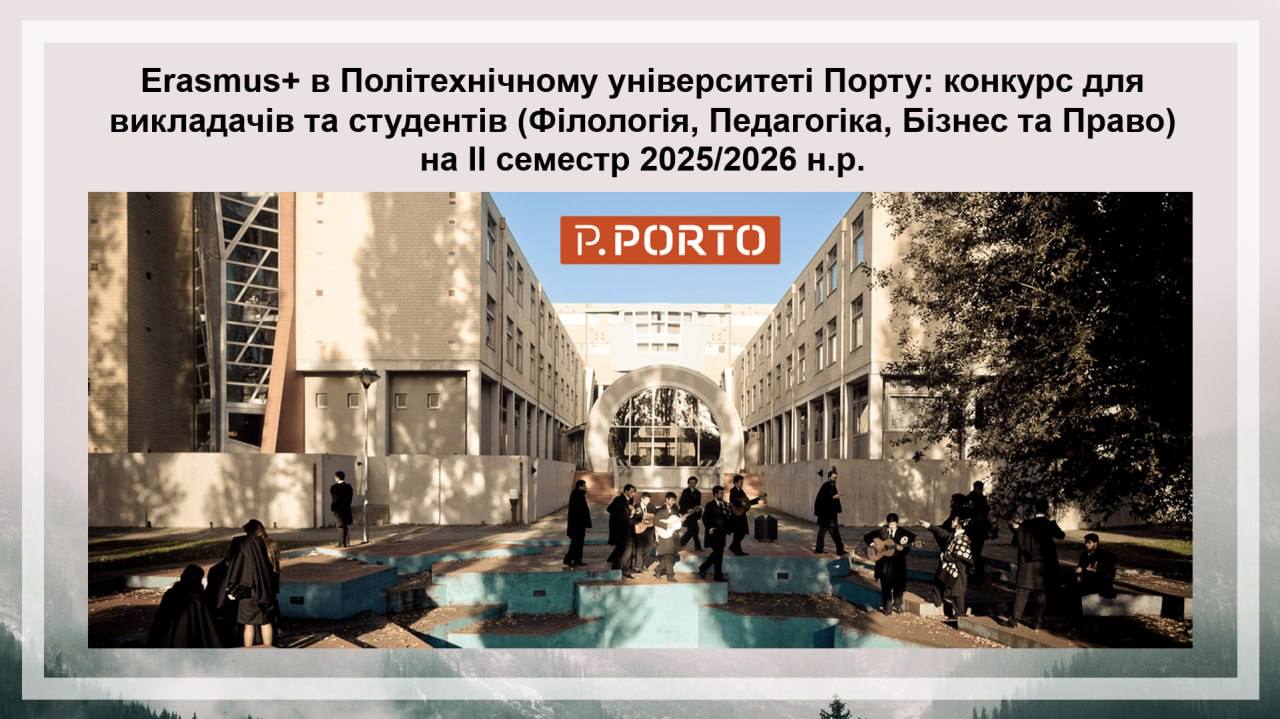On May 31, the participants of the students’ scientific club “Philology” under the guidance of Candidate of Philological Sciences, Associate Professor of the Department of Germanic Philology and Translation of the National University “Yuri Kondratyuk Poltava Polytechnic” Anna Pavelieva held a meeting dedicated to the study of the literary categories of artistic time, artistic space and chronotope in the tale by Mykola Gogol “May Night, or the Drowned Maiden”. 15 philology students of the 1st-5th academic years joined the fruitful scientific discussion, and deliberated on the specifics of the temporal and spatial coordinates of the story about the centurion’s daughter and her evil stepmother, drowned women and lovers whose happiness is hindered by their parents.
Already in the very title of the tale “May Night, or the Drowned Maiden”, the author emphasized the special role of the category of artistic time. In particular, for Mykola Gogol, night is a fantastic time, a time of miracles, it was at this time that the drowned women led dances, the deceased with a dumpling in his teeth “reached out” to the distiller’s late mother-in-law, and other miracles took place.


At the sitting of the scientific club, participants considered one of the most complex chronotopes of the writer-mystic – the chronotope of the night, in which cosmic, diurnal, calendar, mysterious, idyllic time merge together with open space, earthly and cosmic, real visible and imaginary, close and distant. The image of time and space of the Ukrainian night in Gogol’s tale “comes to life”, taking on the features of a full-fledged “character”, and the image of the night created by the writer in this story is considered one of the most masterful and poetic. Future translators analyzed in detail the fantastic time and two layers of plot time (the present for Levko and Hanna and the ancient past, when this story happened), the unreal mythological space and the chronicle-household chronotope (the description of the so-called “street”) as well as its key feature – abstractness; proved that chronic everyday time (a depiction of the life of a Ukrainian village) reproduces not dynamics but statics in this story. These are the meeting in the garden, and the “street”, and the antics of the boys, and the behavior of the head with his fellow villagers and his fellow villagers with him, and his eternal retellings of accompanying the queen.

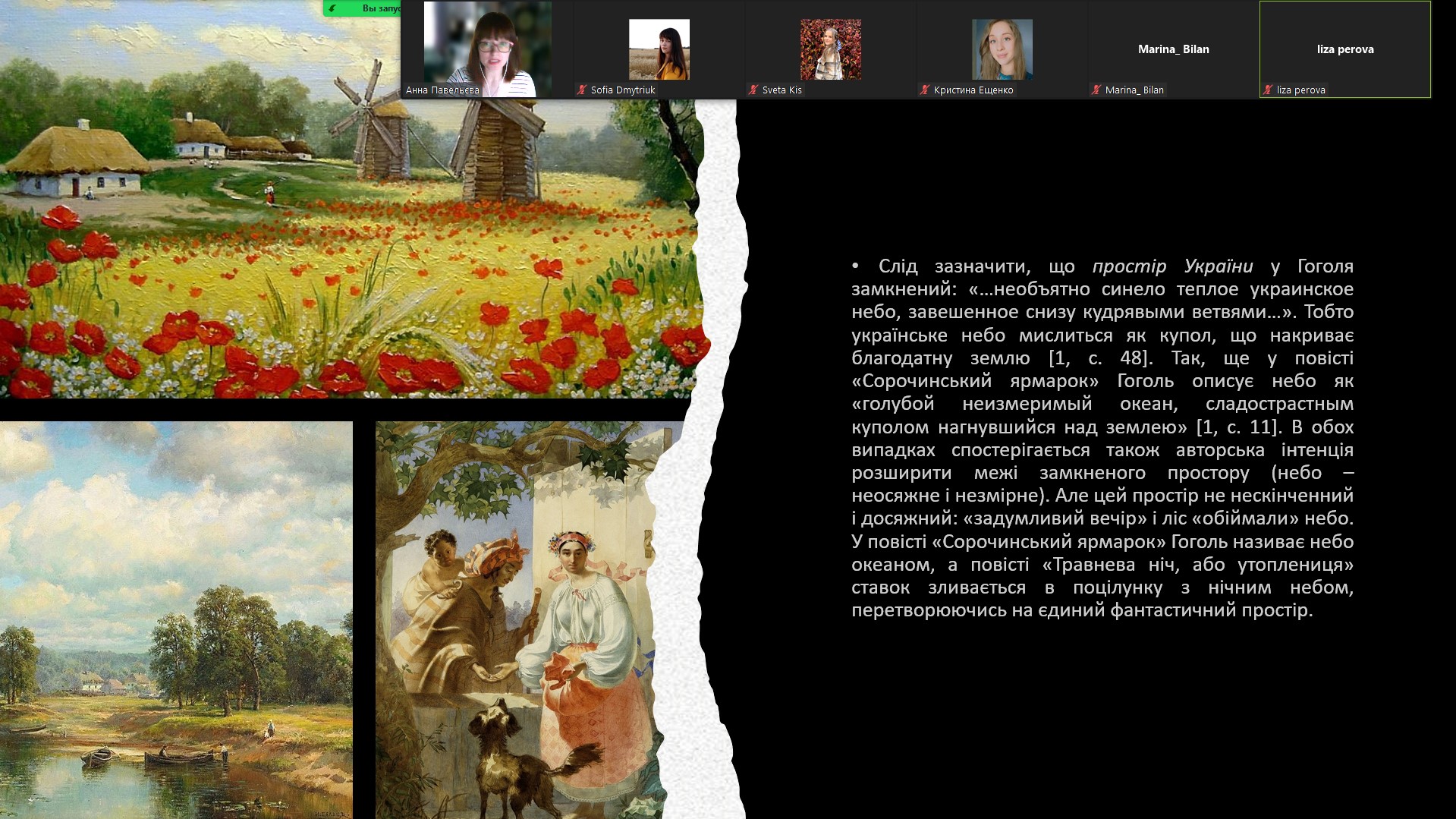


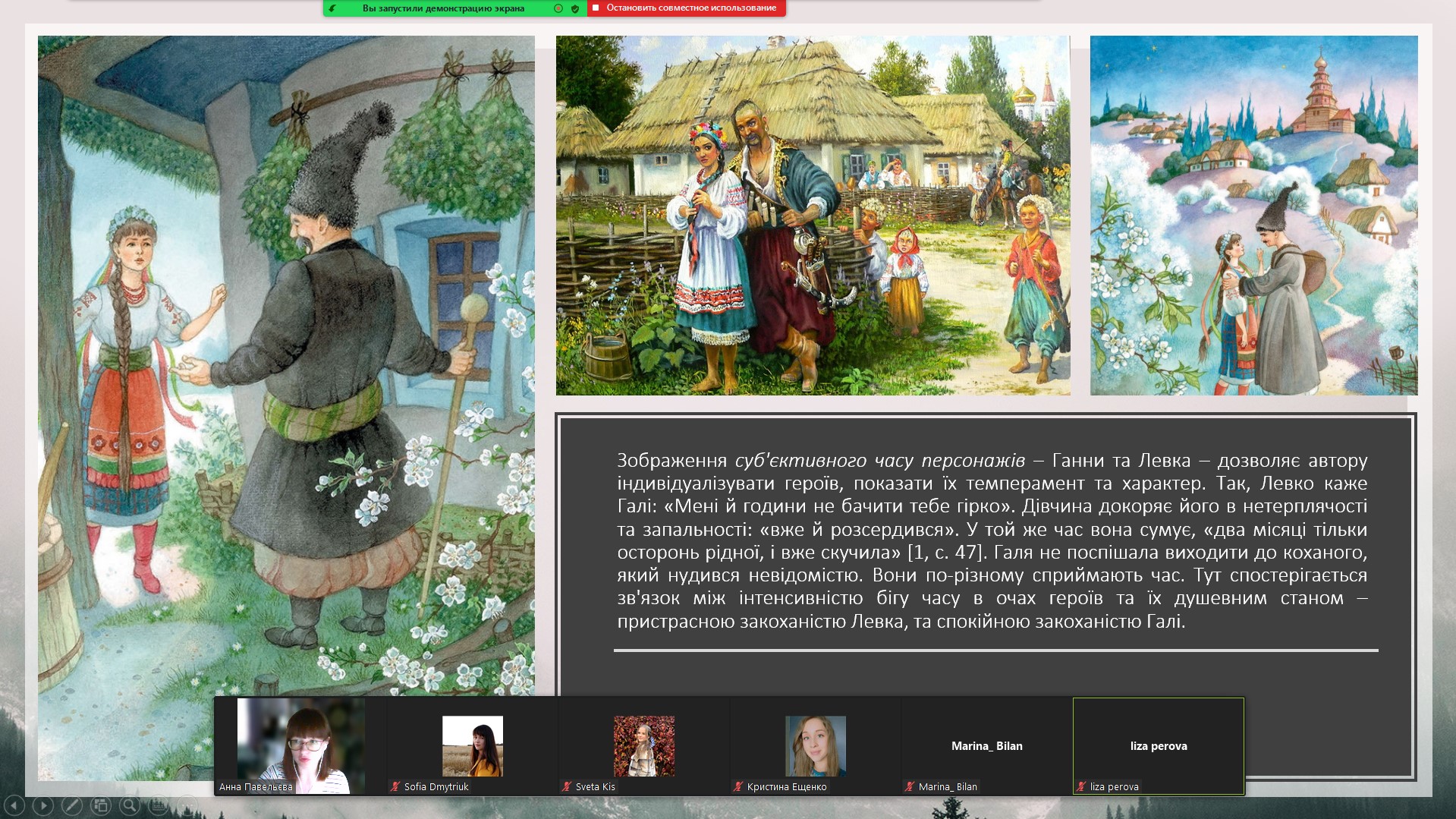

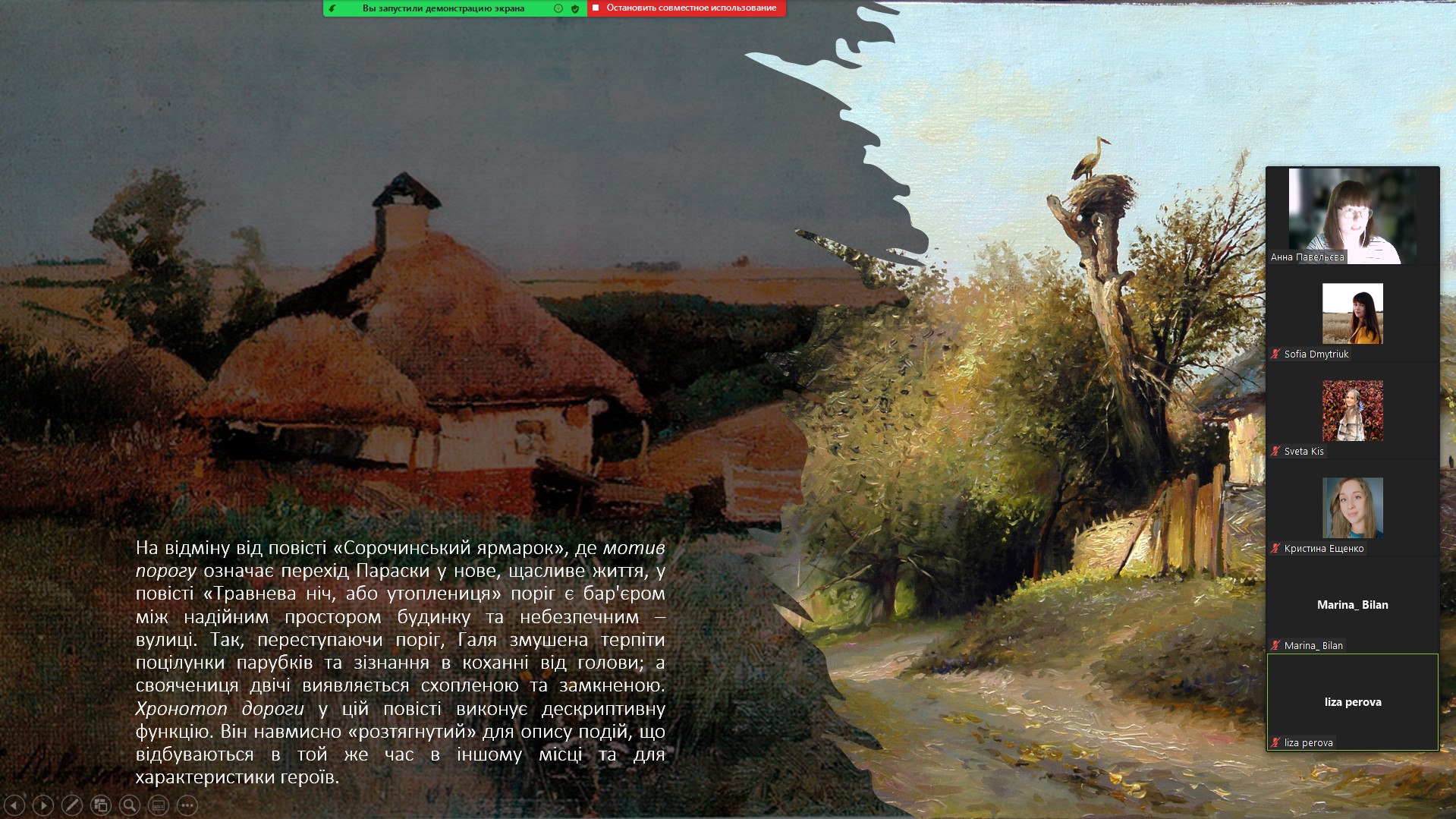

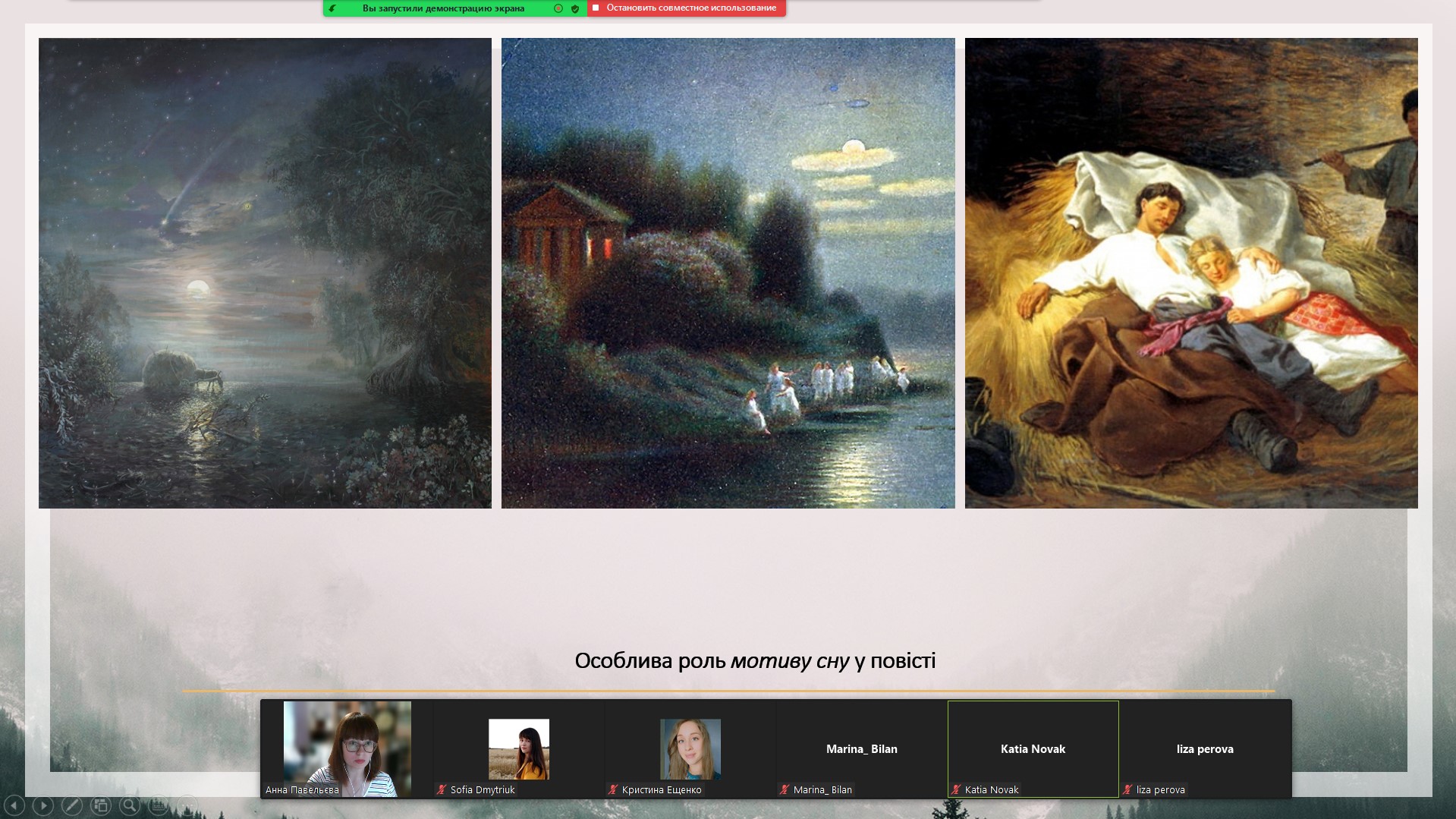
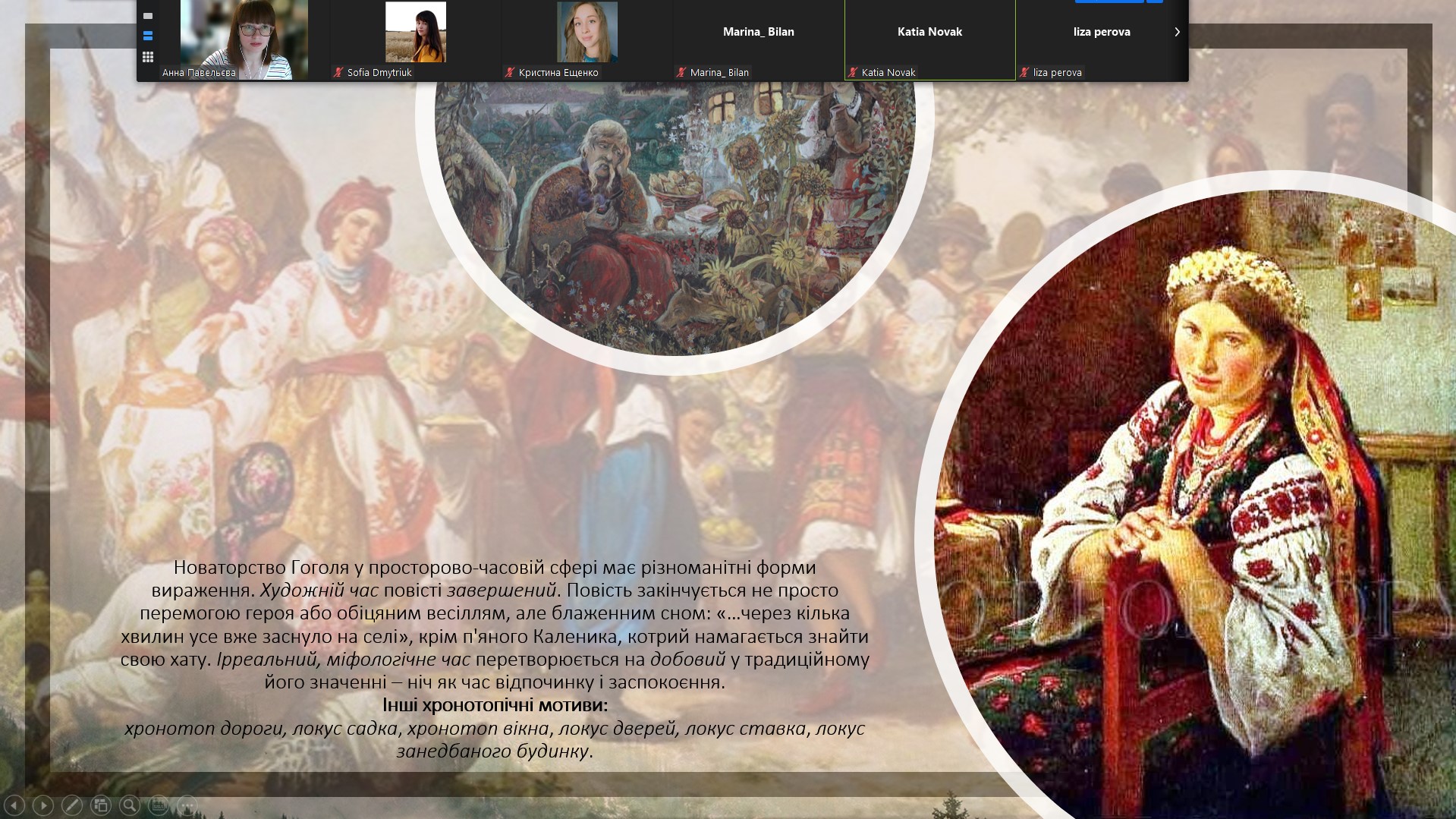


Special attention was paid to the analysis of the plot and diurnal time in the story, the poetic space of Ukraine, the three-level mythological space (the earthly world of people, the divine world – heavens and the underwater world – infernal), mirror spaces (images of “human space” as opposed to “water” (impure space of drowned women) is given in a mirror image), “parallel spaces”. The head of the club, Anna Pavelieva, explained to the students how the perception of time and space is individualized and varied by the characters of the tale, she talked about the dynamization of time, the deformation of space and the “game” of impure spirits with the artistic space of the story (a witch can “spoil” both domestic, “human” space, and mythological (underwater) space of restless souls) in which way the author characterizes the heroes through the depiction of the subjective time of the characters.
At the meeting of the club, young literary experts also discussed the key chronotopic motifs of the story “May Night, or the Drowned Maiden”, in particular the motif of the threshold and the motif of sleep, the famous Gogol chronotope of the road, which in this story performs a descriptive function.
“Gogol’s innovation in the spatio-temporal sphere has various forms of expression, the artistic time of the story is over. The story ends not just with the hero's victory or the promised wedding, but with a blissful sleep: “...after a few minutes, everything in the village fell asleep”, except for the drunken Kalenyk, who is trying to find his house. Unreal, mythological time turns into diurnal in its traditional meaning – night as a time of rest and relaxation.
Among the chronological motifs and images in the story, the chronotope of the road, the locus of the garden, which is a meeting place, the chronotope of the window (Levko begs Hanna to come out to him near the window as well as a drowned beauty appears in the window) should also be highlighted. The door locus is a symbol of protection against danger. For example, Hanna closes the door in front of the guys, and village head – in front of his sister-in-law, whom he mistook for Satan. The list of chronotopes of the story would be incomplete without the locus of the pond (a gloomy and sad refuge for drowned women) and the locus of an abandoned house (the place of the witch’s crimes and the longing of the centurion’s daughter). It was interesting for future translators to learn about some literary moments related to the work of Mykola Gogol,” – said head of the club, Candidate of Philological Sciences, Associate Professor of the Department of Germanic Philology and Translation of the National University “Yuri Kondratyuk Poltava Polytechnic” Anna Pavelieva.
It should be recalled that the sittings of the students’ scientific club “Philology” take place at the Faculty of Philology, Psychology and Pedagogy of the Poltava Polytechnic at least once a month.
The next meeting of the club, dedicated to using the FutureLearn platform to improve speaking skills, will take place in June. Students, schoolchildren of Poltava and the region who are interested in the problems of linguistics, philology and translation studies are invited to participate.
For additional information on the time and place of the scientific club meetings, please contact the Department of Germanic Philology and Translation (Room 310-C) or directly the head of the club – Anna Kostiantynivna Pavelieva by phone: (095) 91-08-192
Previously, the club members presented translation studies of tokens for denoting food in the creative heritage of the writer, presented researches on the work of the author of the poem “Mazepa”, researched translations of phraseology in Mykola Gogol’s novel “Evening before Ivan Kupala”, studied the life and career of William Somerset Maugham, researched modern educational technologies, presented translation studies of the “father” of a classic detective and author of adventure novels, studied the creative heritage of Lake poets, exchanged life hacks on translating advertising slogans from global brands, researched a satirical novel by Mikhail Bulgakov and discussed the creative heritage of Polish science fiction writer.
Media Center of
National University “Yuri Kondratyuk Poltava Polytechnic”
